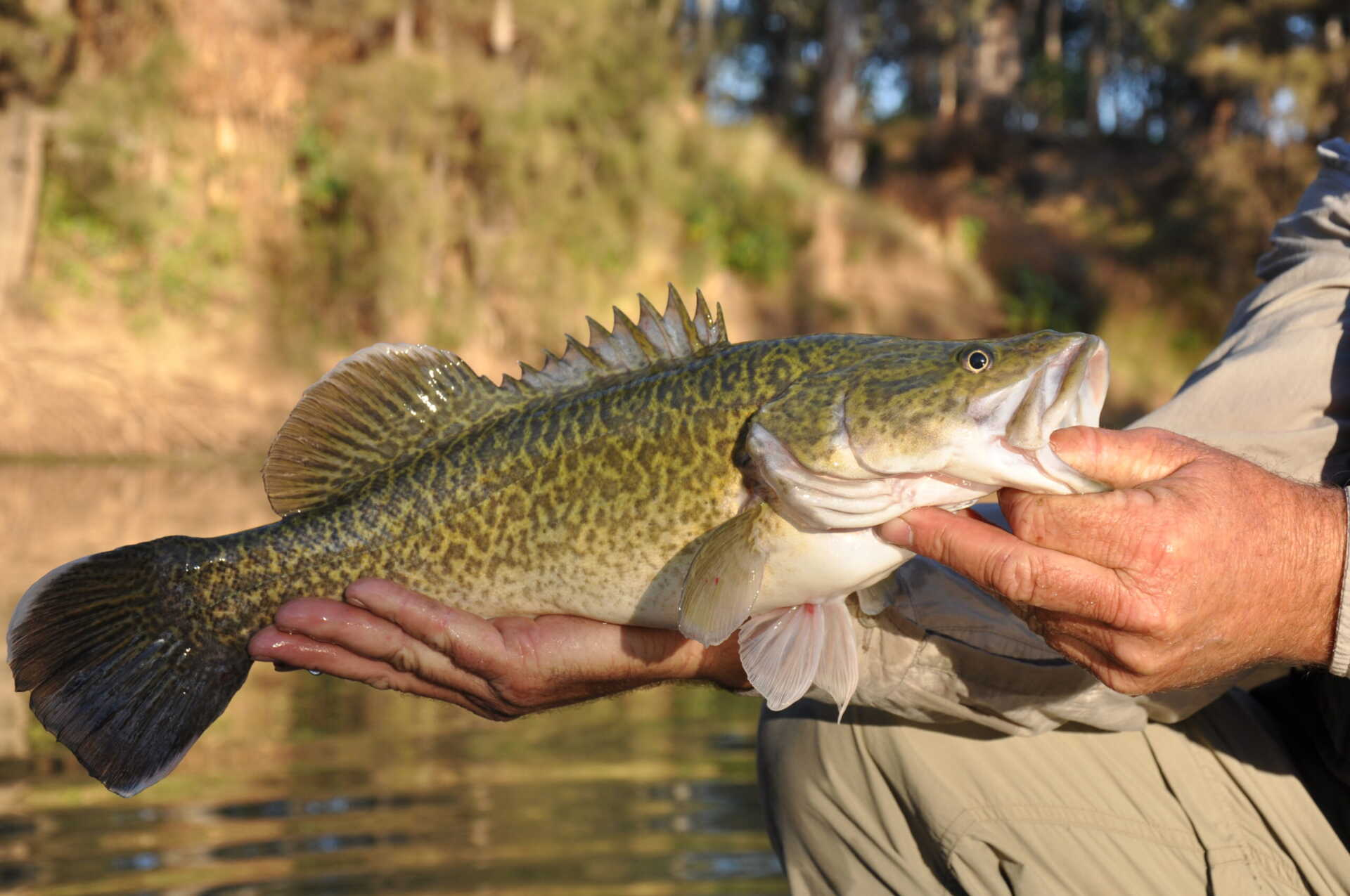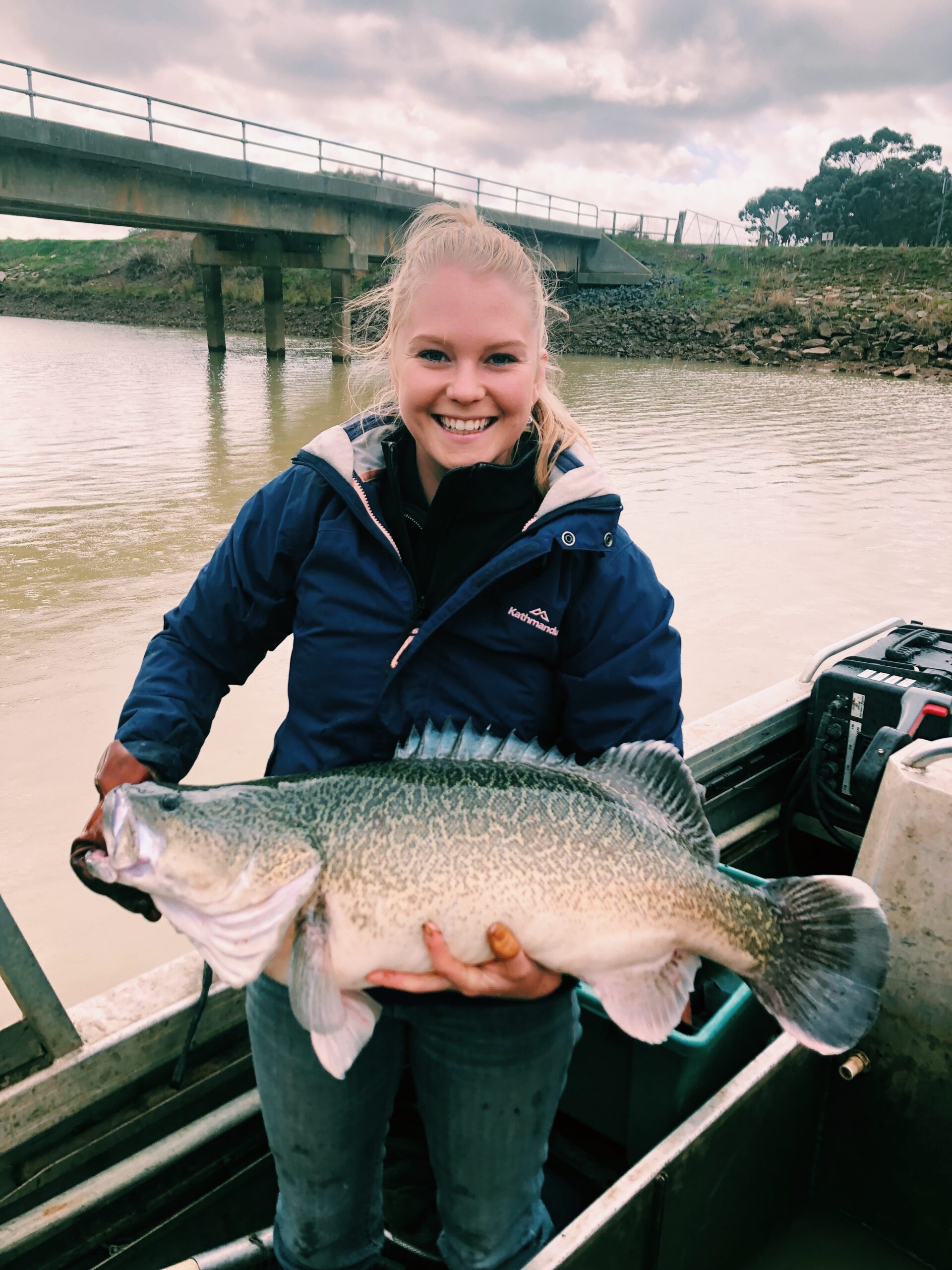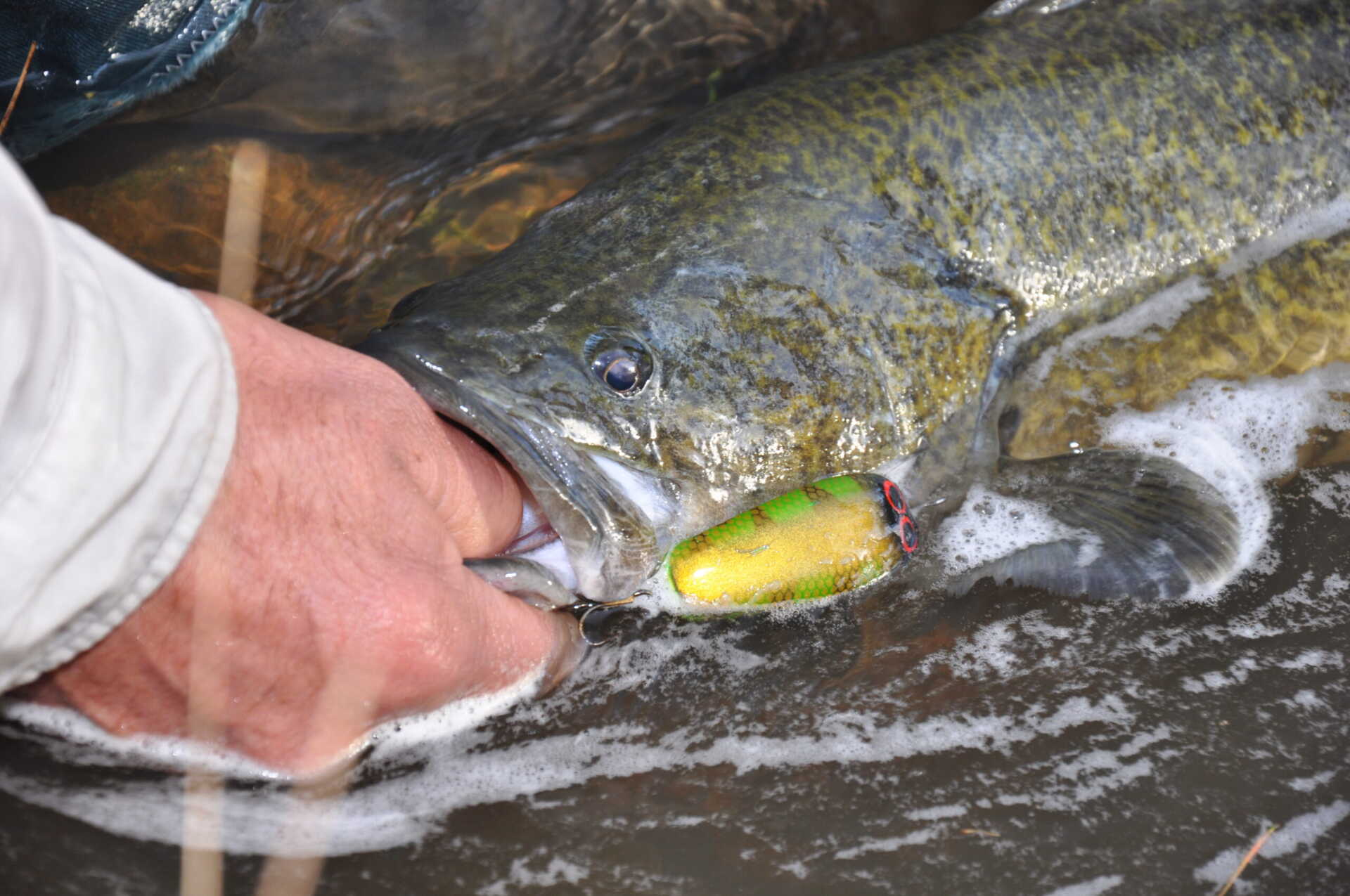Why hatchery bred Murray cod aren’t quite making it in the wild

Very few anglers would argue the fact that Murray Cod are Australia’s keystone freshwater fish. Their size, aggression and diet make for some of the most exciting fishing found on Australian shores, with their green and gold shade fittingly matching the ‘baggy green’.
Like all good native fish, however, there are elements of the Murray Cod that we, as recreational fishers and conservationists, still unsure of. One area, which OzFisher Ellie Sales recently identified in her fourth-year study at Charles Stuart University, is why hatchery fish aren’t quite making the cut when released into the wild.
“I wanted to know if wild Murray cod had different behavioural syndromes to hatchery-reared Murray cod, and if this could explain why fish born in captivity aren’t surviving after release into the wild,” said Ellie.
“Behavioural syndromes can affect everything from growth rate, to reproduction, to habitat use and even the likelihood of becoming someone’s dinner!
“I wanted to know if wild Murray cod had different behavioural syndromes to hatchery-reared Murray cod, and if this could explain why fish born in captivity aren’t surviving after release into the wild.
In looking at this area, Ellie conducted a range of tests on the behavioural tendencies on juvenile Murray cod from both hatchery and wild environments.
“I choose to conduct trials that test for ‘boldness’. I looked at whether each fish would approach a potential predator, how likely they were to emerge from a shelter and how much they explored a new environment.”
The results showed that bold fish generally forage more frequently, grow faster, explore new environments and use shelter less. However, they often suffer higher predation rates because they’re more willing to take risks.
“By looking at boldness I was aiming to better understand the correlation between a fishes behaviour and their survival rate.”
Ellie tested over 100 hatchery-bred Murray Cod, in three different boldness trials.
“Each of the hatchery Murray Cod showed consistent bold behaviours. For example, if a Cod approached the predator stimulus, he would also emerge from a shelter quickly and explore a new environment. If he didn’t approach the predator, he wouldn’t emerge from a shelter or explore the novel environment.”
“Even more interesting, hatchery reared Murray cod behaved completely differently to the wild Murray cod!”
“For instance, 70% of the hatchery-reared fish emerged from their shelter, while only 10% of wild fish did so. The hatchery reared fish were also much more likely to approach a predator and explore a new environment.

On the whole, Ellies results showed that hatchery fish were far bolder than the wild fish. But what does this mean?
“Essentially, it found that hatchery-reared Murray cod behave very differently to their wild equivalents. This could help to explain why they often don’t fair so well after being released into the wild (especially if they happily swim up to predators!).”
“They appeared to have little fear of potential threats, so it’s not surprising that they might end up in a bigger fish’s belly!”
Of course, there are many circumstances where re-stocking is useful or even necessary to support wild populations of fish in areas where fish numbers are decreasing. What we can learn, however, from studies such as this is the importance of ensuring wild fish have healthy habitats that allow them to reproduce naturally.
“Wild fish seem to know what they are doing, so it’s in our best interest to support them by ensuring their habitat is not only sound, but plentiful. Wild fish use structure like snags, root systems, trees and rock bars to breed, feed and seek shelter, so by maintaining habitat like this in our various rivers and creeks, we are giving the fish the best chance at survival well onto the future.”

Ellie is the Norther Queensland Project Officer at OzFish and has recently graduated from animal science at Charles Stuart University. Ellie is passionate about ensuring our native fish populations have the best chance of survival well into the future, and it committed to working on projects to ensure the iconic Murray cod is a beneficiary of such research.
Join Ellie on her mission and get involved with your local OzFish Chapter! Phone 1800 431 308 or visit the projects page to find out more.
